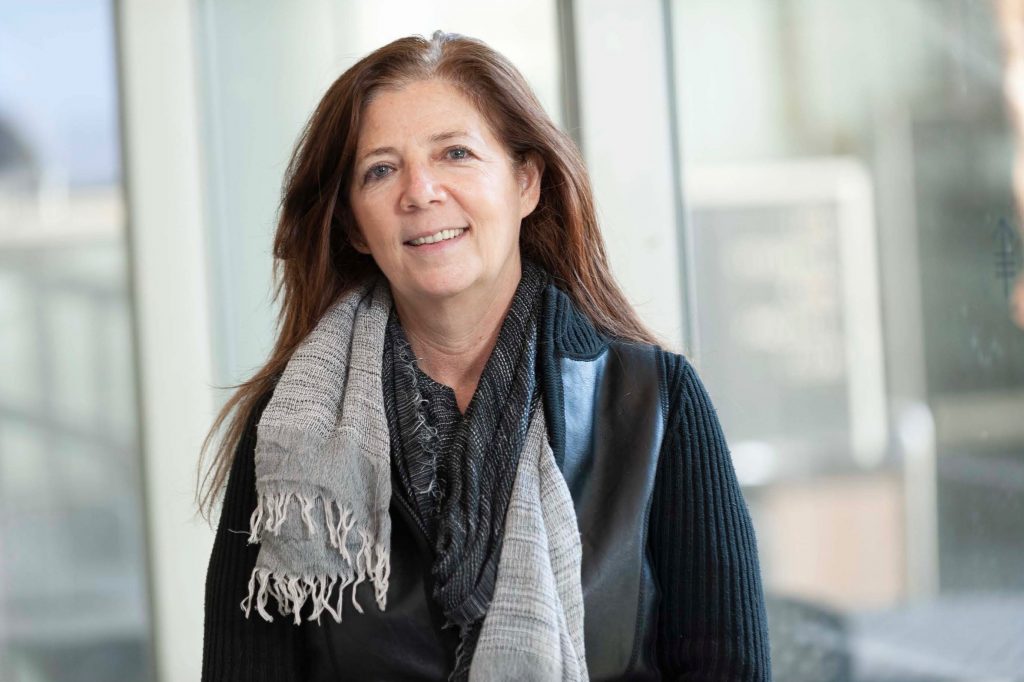Bench to bedside, the more informal term for translational medicine as applied to cancer research, is scientist Kety Huberman’s expertise. “It’s the area in which research comes closest to patient care” said Huberman. It defines the arena in which as Operations Manager she provides leadership at Memorial Kettering Cancer Center (MSKCC). More specifically, Huberman supports the way in which research is conducted by the numerous teams of scientists working in MSKCC labs on understanding mechanisms and developing treatments to combat different types of cancer. She is a specialist in a lab management system called Lean. Originating in Japan, this concept focuses on streamlining laboratory procedures to minimize waste and maximize efficiency to support scientists‘ efforts and their use of state-of-the-art technologies for collection and analysis of data.
Asked about her proudest professional achievement over the past 30 years, Huberman said it’s her contribution to the way cancer research has dramatically changed how patients are treated, from a systemic drug treatment based on the “geographic” approach when cancer is detected in a certain part or area of the patient’s body, to the current practice of targeting cancer molecules that share certain characteristics wherever they are found in the body.
Essentially, targeting involves pre-treatment screening of all cancer patients to see if their tumor, wherever it is located, is likely to respond positively to a certain medication under development. “I may not discover the cure for cancer but am part of the change in giving cancer patients options for their treatment,” said Huberman. The process, now approved by the FDA, was a long time coming for Huberman and other researchers. “I always thought there was a disconnect,” Huberman said. She explained that without this change, patients might be given false hope in the effectiveness of taking a drug that actually had little likeliness of attacking their specific type of cancer cells.
How did Huberman’s interest in science and research lead to a career that engages her interests and skills with such impactful outcomes?
She was born in Chicago to parents who were Argentine. After her father, who passed away ten years ago, earned his Ph.D in Chemistry at the University of Chicago, the family returned to Buenos Aires where Huberman grew up. She completed her university studies and began her career in Argentina at a hospital as a researcher in infectious diseases. She said that while she was always interested in cancer, the prevalence of viral diseases in Argentina and other developing countries made grant funding for ID more available.
While working a side job as a translator, she met her husband, an Upper West Sider, who was working in the theater world. After maintaining a long-distance relationship, the couple moved into their West 95th Street apartment. Eventually, they bought a second apartment and combined the two.
Huberman worked as a researcher at Mt. Sinai and then took what she considers to be an exceptionally stimulating and rewarding job at a biotech start-up in Long Island that was developing a cancer drug. The success of that project led to the creation of the company as a pharmaceutical firm. Huberman left because the commute was too demanding and unreliable for her to be available for her young daughter. She needed a job in the city and found one at MSKCC.
Initially, she was attached to the Genomics Lab. That facility was used to model the Lean approach and following its success, Huberman was given a new role, which she holds today overseeing Lean operations in all MSKCC “core” specialty labs. When Covid hit, she said, the exemplary organization of the MSKCC labs made it possible to transition to work specifically on Covid testing.
Outside MSKCC, Huberman wears an entirely different hat as President of the Co-op Board of 255 West 95th Street where she and her husband have lived for almost 30 years. They’ve raised their daughter there.
In recent years, construction on three sides of the building has been causing ongoing problems with noise pollution and an unresolved issue with smells from a neighboring McDonald’s rooftop vent that was repositioned when a new building was constructed that cantilevered over the McDonald’s. In spite of this Huberman said “I love the building and neighborhood.” While she does visit Buenos Aires two-three times a year, she is here on the Upper West Side to stay.

 By
By